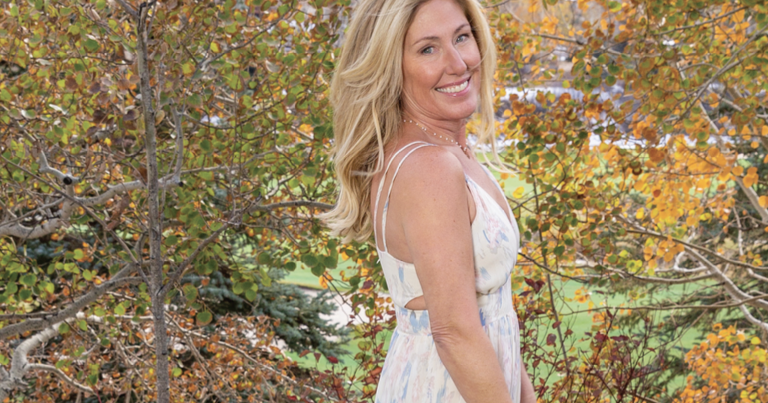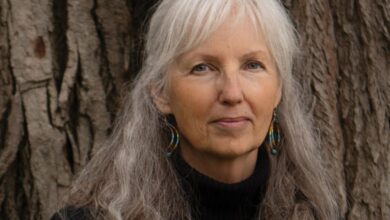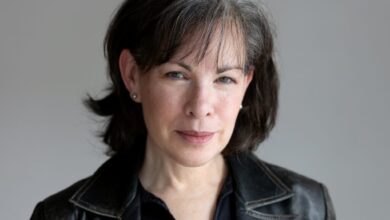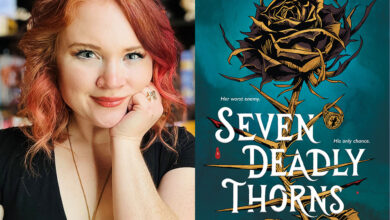Q&A: ‘The Almost Empty Nester’ Author Karla Raby Olson | Profiles

About 22 million people are described as “empty nesters,” parents and caregivers of children who have moved out of the family home or left for college. Of these millions, only about 7% have prepared for what life will be like once their children move out.
Aware of that lack of transitional readiness, “The Almost Empty Nester” author Karla Raby Olson wants to help moms (and some dads) rediscover and prepare for what life is like once their child has “left the nest.”
Raby Olson has lived in Park City, Utah, for the last 12 years but was born and raised in Bellevue. She is planning a return to her hometown. She is a mother of three girls, two of whom have flown the coop, and the last one is soon to leave. Since embarking on her empty-nester journey, Raby Olson recognizes the huge life transition that might come for mothers who want to rediscover themselves and their passions after their kids leave home. Since her book’s debut last October, “The Almost Empty Nester” has sold thousands of copies and has created a community of like-minded empty nesters.
We caught up with Raby Olson to discuss her book, and rediscovering one’s soul whispers.
This conversation has been lightly edited for length and clarity.
What made you decide to begin working on this book?
When my first daughter graduated, I thought, “I don’t have to think about empty nesting. I still got six years.” Fast forward three years, when my middle daughter graduated high school, and I still didn’t know what I wanted to do in my empty(ing) nest. That’s when I sat down to write the book. It was kind of like a personal project for me at first, but once I realized there wasn’t a lot out there for mothers to help them with this transition, that’s when I really dove into the research. A lot of the empty-nesting books were good, but they were outwardly focused. Like, “How to get along with your partner” or, “How to get along with your adult children.” All important books, but there was nothing really to help the mom. This book helps women redefine their next best chapter but also embracing this new rhythm in life.
Your book mentions helping moms rediscover their “soul whispers.” What does that mean?
I define it as those little nudges that you’ve always had in life when we’re younger. It’s things we go after, and we have a little bit less hesitation about. When you get busy with work and being a mother and all the things, I feel like our soul whispers get set aside. But the older we get, the more we can’t ignore them anymore.
What has your journey been like rediscovering your soul whispers?
For me, it was singing; I stopped singing for so long. Finally, I saw “The X Factor” was coming to Seattle, and I was like, “I’m doing it; I’m gonna try out,” and that’s when your inner critic pops up, like, “Oh, I can’t do this.” I actually ended up getting a golden ticket on “The X Factor.” I didn’t make it to the TV rounds, but it was a win for me because I really allowed one of my soul whispers to come to life. I think at this stage in life, mothers are really awakening to what their passion and purpose are. It can get so muted over the years when you’re so busy. Children see us thriving and living our best lives. It gives our kids permission to go do the same thing, so I hope it has a generational effect.
Your book provides a framework for the empty-nest transition. Is there a step that you think women struggle the most with?
The research clearly pointed to the happiest empty nesters — (they) were the ones that prepared for it. For some people, it kind of snuck up on them, like packing for vacation, you know — we delay that sometimes? But the ones that prepared for it really did well. By the time their kids leave high school, if they’ve taken the time to fill up their own cup, then everyone else kind of falls in love with the overflow. And when we’re fulfilled as a person, we can give more; we can do more. So, it was definitely preparation.
Letting go can be hard for some parents. What’s your advice for handling those bittersweet moments when children begin to leave home?
When children begin to move out, we’ve got to trust that they will figure it out, and that’s how they grow. We have to trust them because they want to trust themselves. If we keep jumping in, then when are they going to build that trust for themselves? I really think the letting go is super important, but it’s also a shift in your mind. It’s like letting them go, but also, you’re going to have a new relationship with this adult child.
For people who might be feeling overwhelmed thinking about this life transition, can you suggest one small step they can take to prepare?
Check out our community! I do a letter once a month, and it’s such a nurturing place. It’s a good baby step. Another thing would be to try to connect with a local empty nester group. If you don’t have a group in your city, start your own on Facebook. I’m sure you’ll find four or five people that might want to meet for coffee that are in the exact same boat that you are.
Grab a copy of Raby Olson’s book, “The Almost Empty Nester,” on Amazon. Learn more about The Empty Nester Club here.
Source link




